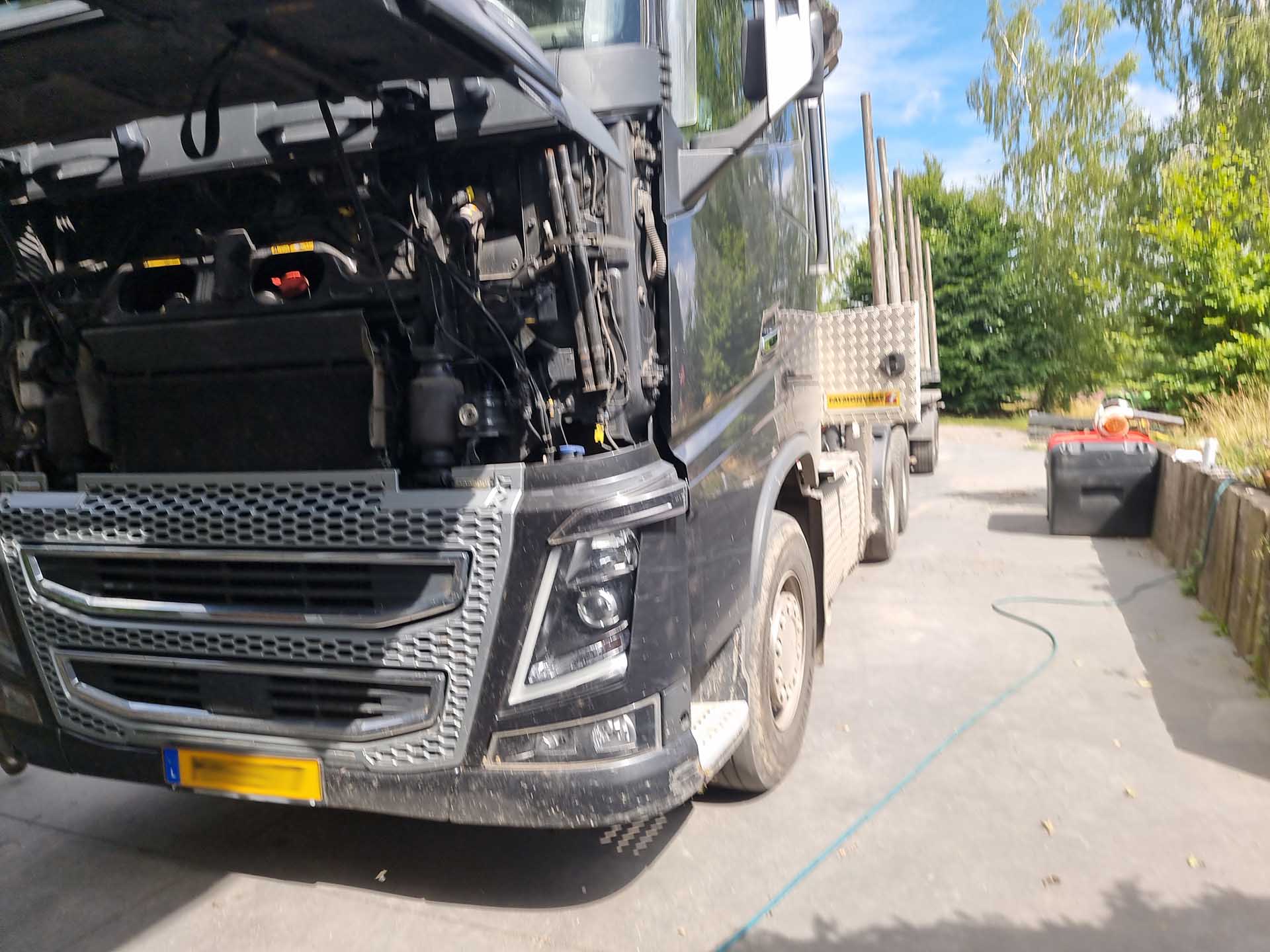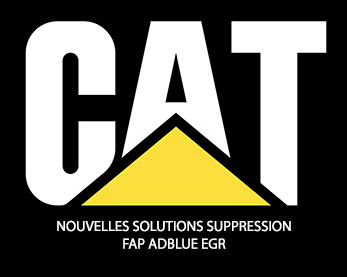AdBlue failure Volvo FH16 650 + Power increase
Fault codes relating to AdBlue failure
This Volvo FH16 650 is experiencing problems with AdBlue, which may cause a reduction in truck speed. Fault code P207F9A indicates a "reducing agent quality error" and P204F93 indicates a "SCR system dosing failure".
Euro 6d is a European regulation that sets pollutant emission limits for light and heavy-duty vehicles. It aims to reduce greenhouse gas emissions and improve air quality by limiting emissions of carbon monoxide (CO), nitrogen oxide (NOx) and fine particles (PM). Torque reduction is a technique that consists in limiting engine power by reducing engine torque. This can be done temporarily, as in the case of pollution or safety problems, or permanently, as in compliance with Euro 6d pollutant emission limits. Torque reduction can have an impact on vehicle performance, such as a reduction in top speed (20kmh) or acceleration (engine torque).

Management by ACM and EMS control units
The ACM (AdBlue Control Module) and the EMS (Engine Management Module) are two closely linked systems that work together to manage AdBlue problems in a vehicle.
The ACM is responsible for monitoring and controlling the injection of AdBlue into the selective catalytic reduction (SCR) system. If problems are detected with the AdBlue, the ACM can send a signal to the EMS to adjust engine control accordingly.
The EMS is responsible for monitoring and controlling engine operation. If problems are detected with the AdBlue, the EMS can adjust engine regulation to reduce pollutant emissions and protect the engine from damage.
Essentially, the ACM and EMS work together to manage AdBlue problems by monitoring the operation of the SCR system and adjusting engine control accordingly. If problems are detected that cannot be resolved in this way, they can inform the driver and indicate that maintenance is required to repair the system.

Remove clogged particulate filter, empty and reinstall it
In theory, it is forbidden to break the particulate filter (FAP) to allow exhaust gases to pass through, as this can lead to serious safety and pollution problems. The role of the DPF is to filter the soot and pollution particles contained in the exhaust gases of a diesel engine. Clogged DPFS can reduce engine performance and cause pollution problems. This is the case when fault P24A400 (Clogging of the diesel particulate filter - soot accumulation too large (row 1)) is indicated on the instrument panel.
Error message P24A400 indicates "diesel particulate filter clogging - soot accumulation too high (line 1)". This means that your vehicle's diesel particulate filter (DPF) is clogged with soot and pollution and needs to be cleaned or replaced.

Adblue Fap Off reprogramming for export and a Stage 1 on FH16 650 to boost output to 750hp
BUSCAN (Bus de contrôle et de communication) is a communication network used by various modules in your vehicle to exchange data and commands. Modifying ACM and EMS programming via BUSCAN can disrupt the operation of these modules and cause performance or safety problems if not done correctly. However, when carried out correctly, it can, among other things, permanently eliminate faults caused by a defective emission control system, particularly when exporting your vehicle. The electronic manipulation remains invisible, but it is the driver's responsibility to decide whether or not to use his truck in areas not subject to Euro 6 regulations.
In addition, after removing the DPF cartridge, we reprogrammed the vehicle to improve engine performance. The D16K powering the FH16 is now rated at 750hp and 3400Nm of torque. Fuel consumption is down by around 1 to 2L/100km.
Discover our services or contact us for your vehicle



